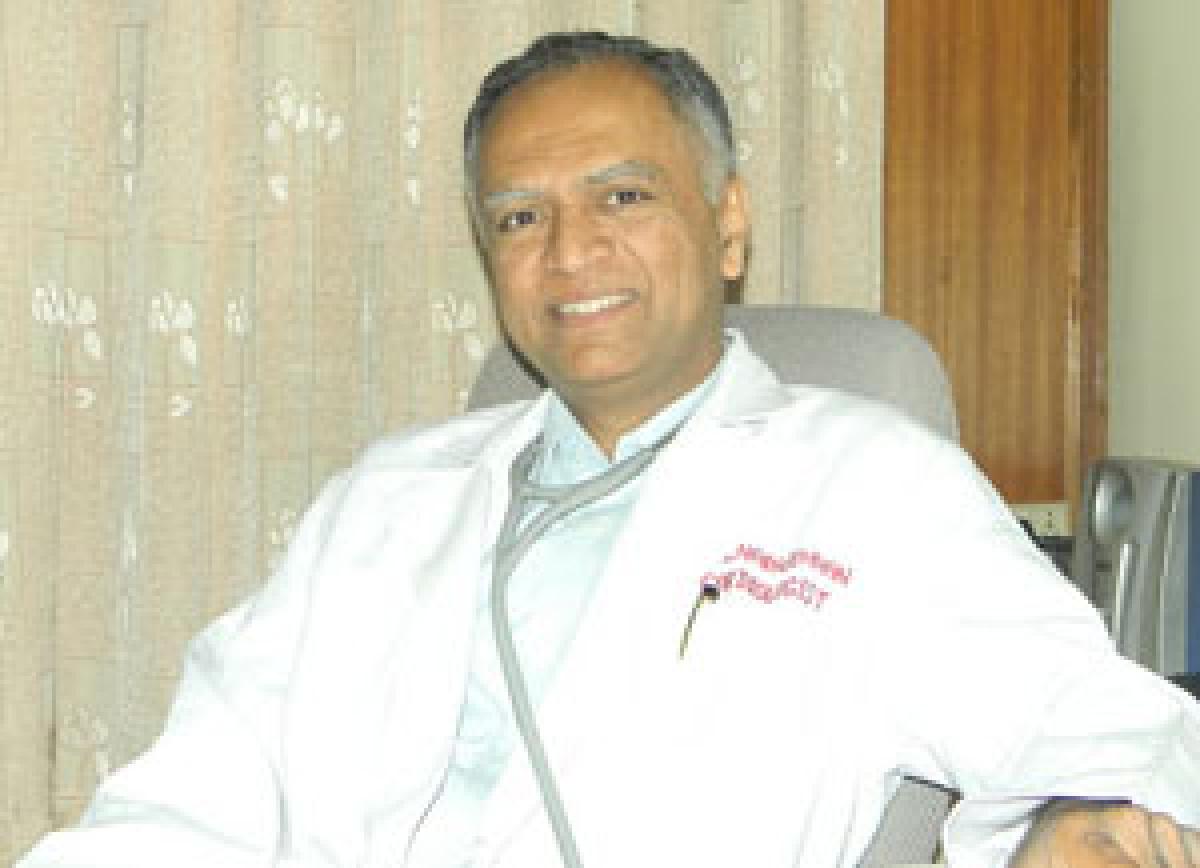Live
- Unselfishness is a Lie
- BJP leaders mock Rahul's speech
- Analysing Happiness
- Two-day ToT organised for trainers
- Savarkar preferred Manusmriti to Constitution: Rahul
- Daily Horoscope for 15 December 2024: Embrace Today’s Insights of Your Zodiac Sign and Unlock Your Potential.
- Beyond The Flames
- CM warns officials of stringent action
- NDA alliance candidates win all seats
- ‘Resignation of Avanthi Srinivas leaves no impact on YSRCP’
Just In

The New England Journal of Medicine (NEJM) has published the results from the pivotal ‘Micra Transcatheter Pacing Study’ that was performed by Care Hospital.
 Care Hospital’s study published in England journal
Care Hospital’s study published in England journal
The New England Journal of Medicine (NEJM) has published the results from the pivotal ‘Micra Transcatheter Pacing Study’ that was performed by Care Hospital.
The publication reported the interim results of the study, which was done on patients with slow heart rate requiring a pacemaker using the world’s smallest pacemaker, the ‘Micra Transcatheter Pacing System’ (Micra TPS) in place of conventional pacemakers to treat patients with slow heart rate.
The study reports results on 725 patients from across 56 centres in 19 countries in North America, Europe, Asia, Australia, and Africa. The device was successfully implanted in 99 per cent of patients. In six months follow up, the pacemaker was effective in its functioning in more than 98 per cent of patients and 96 per cent of patients had no major complications.
Micra TPS is less than one-tenth the size of conventional pacemakers. Once placed, it is attached to the heart wall and can be repositioned or taken out if needed. The advantage of this miniature device is that through its most advanced pacing technology, it enables the cardiologist to implant the TPS directly into the heart of the patient through minimally invasive access without the requirement of leads or surgical pocket.
Despite its small size, the Micra TPS has a battery life of 10 years. Patients implanted with Micra TPS can undergo MRI scans if needed. Many conventional pacemakers do not have MRI compatibility.
The Micra TPS was awarded CE mark in April 2015 allowing marketing of the device in the European Union. The study continues and is expected to be completed in approximately four years when the long term safety and effectiveness of the device will be evaluated.
Dr C Narasimhan, Director, Electrophysiology and Arrhythmia Services, CARE Hospital in Hyderabad, who was the lead investigator and Steering Committee Member and one of the authors of the NEJM article, opined this technique has the potential of improving the safety and reducing the complications. There were 10 implants performed at CARE Hospital with no major complications.

© 2024 Hyderabad Media House Limited/The Hans India. All rights reserved. Powered by hocalwire.com







